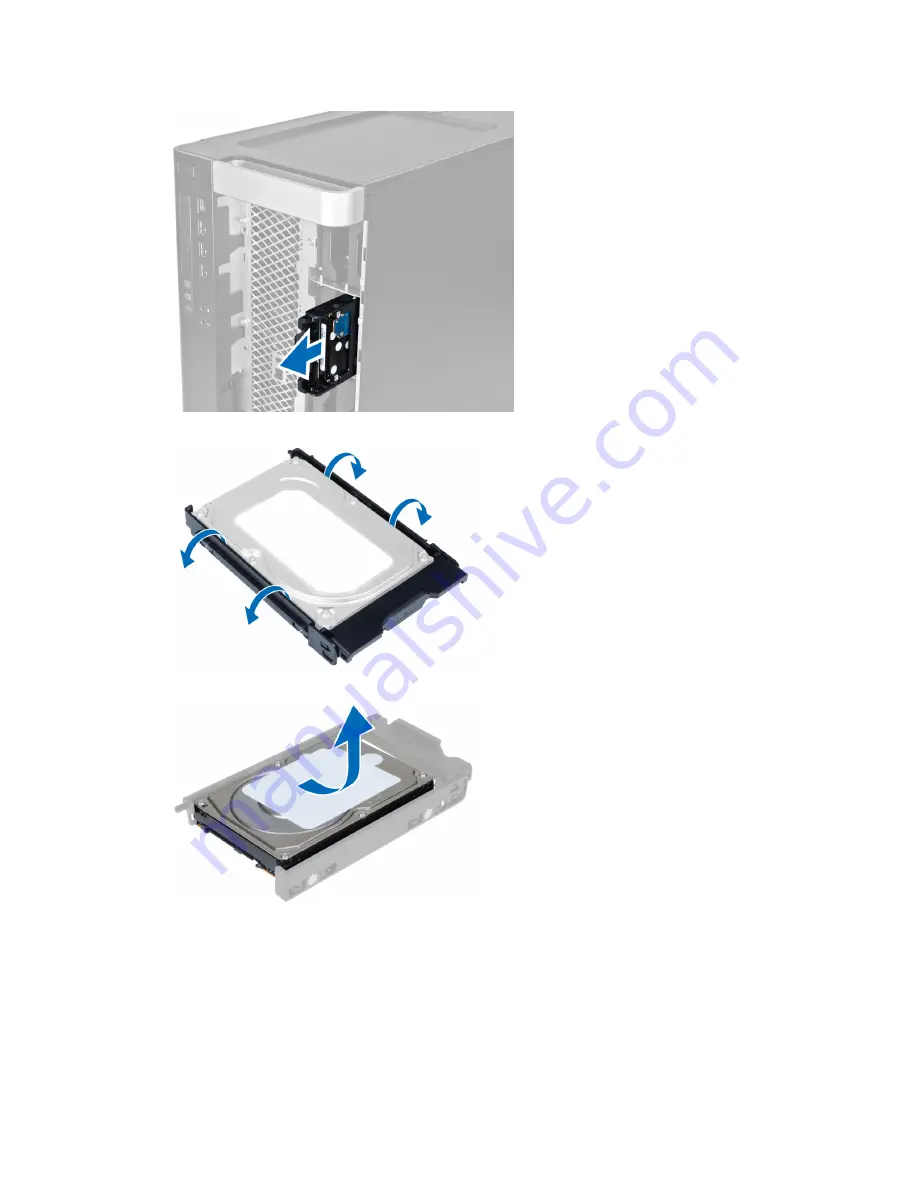
7.
Flex the hard-drive bracket on both sides to loosen the hard drive.
8.
Lift the hard drive in an upward direction to remove it from the hard-drive bracket.
9.
If a 2.5 inch hard drive is installed , Push the retention clips in an outward direction and lift up the
drive to remove it from the 3.5 inch hard-drive caddy.
16
















































